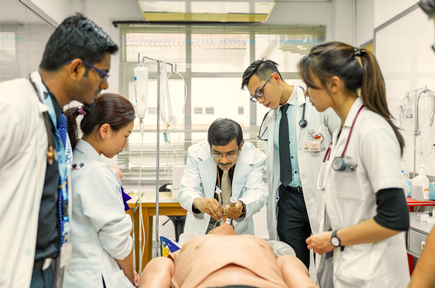
College is a swirling vortex of options. There’s the pull of parties and Frisbee in the quad, clubs, and teams; of course, the whole point is to study for your degree. Despite what your parents might tell you, that last part isn’t the only thing that’s important to your future career. There’s a little more to it than that.
Opportunity outside the classroom
Joining a club, volunteering, landing an internship, and playing sports can help you increase confidence and connect with people outside the classroom. On a résumé, it showcases teamwork, leadership abilities, time management skills, and commitment. College sports, for instance, translate well into specific job markets.
For example, a 2006 study found that student-athletes earn more in business, the military, and manual labor, though they often become high school teachers. Extracurricular activities provide valuable professional experience and create networking opportunities. In certain industries, who you know may be more important than what you know, and the opportunity to connect with alumni, Greek life members, or old teammates with established careers is invaluable.
The Bottom Line
A 2011 National Survey of Student Engagement reported that over 233,000 college students were involved in internships, field experience, volunteering, and community service. Choosing whether to devote time to efforts outside the classroom or study in the library depends on what you want out of college and your plans for the future. Everyone has different priorities, so plan accordingly.
Higher, higher education
On the other hand, hitting the books and forgoing time-consuming extracurricular activities can be necessary to meet GPA requirements and class prerequisites. Particularly in psychology, master’s and Ph.D. programs don’t find extracurricular activities very important when reviewing applications (unless they’re closely linked to the field you’re studying). Still, GPA and post-graduate test scores are highly important. On the other hand, extracurricular activities like volunteering or internship experience in a related field are as important as a GPA on med school applications.
However, focusing on grades can leave your work experience lacking if you apply for a job. Never fear: devote a section of your résumé to “related coursework.” While some employers may not consider GPA or alma mater, courses that teach skills specific to what they’re looking for could prove eye-catching.
Higher grades are also a means for networking opportunities with professors. Professors often notice students who do well or are highly involved in their classrooms. When the time for references rolls around, a good impression of a professor opens the opportunity for a recommendation letter, which can significantly improve the chance of employment or graduate school admission.
Quality vs. quantity
Hitting the books or the playing field is also a matter of honest self-evaluation. If you’re sociable, adept at networking, and an able teammate or leader, focusing on extracurricular activities may provide opportunities suited to your skill set. If you work better solo and have a greater capacity for focus and studying, putting more effort into your grades might yield greater rewards.
Whichever path suits you, remember not to overstock your schedule–quality is always better than quantity. Joining clubs or taking on extra courses just to fill out a résumé can not only hurt performance in either area but can be recognized by a potential employer. The duration of extracurricular participation or a lower GPA from triple majoring won’t go unnoticed. It is possible to juggle extracurricular activities with school studies, but like all aspects of college, it takes discipline.




Be the first to comment